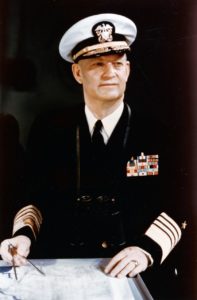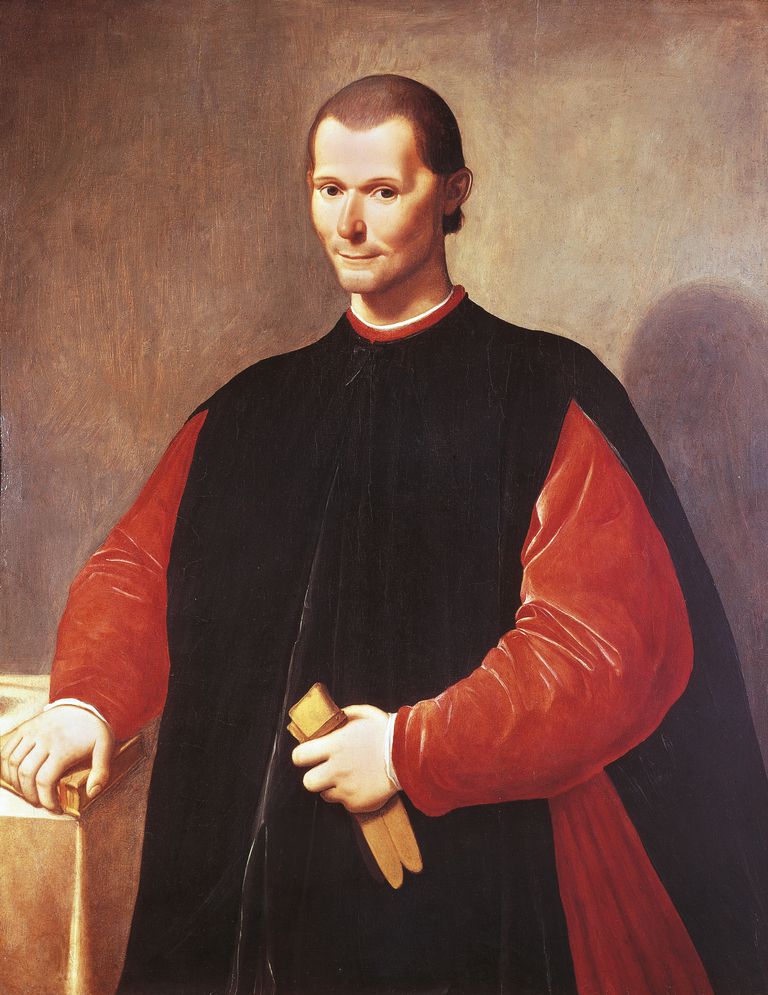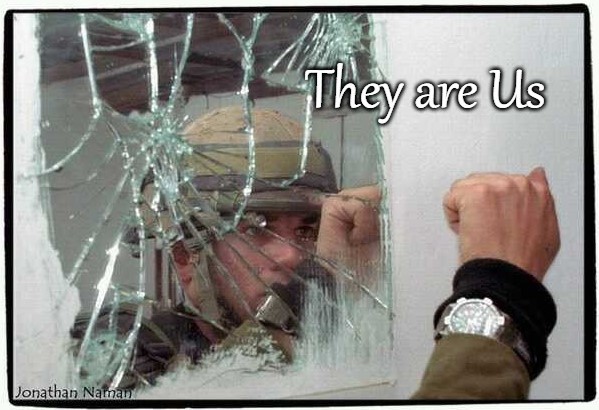By Paul Evancoe
07 August 2020
We are continually bombarded with media hype favoring one candidate, while character assassinating the opponent(s); it’s an election year. How are we to decide what to believe? Ultimately, it all boils down to three fundamental themes shared across all presidential politics: Appeal and Policy, Providence and Integrity, and The Question of Ethos. Let’s take a closer look.
Appeal and Policy
There are candidates who profoundly believe in their policies, and they sincerely intend to lead based upon what they have said on the record. Many in the electorate think leadership is founded upon a candidate’s stated ideas, policies, and ideologies. Thus, many people search for what they think the candidates believe rather than determining whether they mean what they say.
The media’s talking heads and self-proclaimed policy experts disparage the fact that the public frequently appears oblivious of, and indifferent to, the naked policies those seeking power actually stand for. The public can be influenced by fatuous slogans, negative agenda-driven reporting (weaponized information), or simply by their perception of the kind of person they believe their candidate to be. We are manipulated to see the aura, not the person behind it. This “beauty pageant” approach to qualification exasperates the ordinary person’s perception of his candidate’s political position and ability to lead.
What is leadership? In 1943 Navy Cross recipient, Admiral Arleigh Burke, who distinguished himself in both WW-II and the Korean War, disseminated his definition on leadership. “Know your stuff. Look out for your men. Be a man.” While not politically correct today (for 2020 palatability replace men with people and man with person), these three simple, yet powerful sentences remain teachable and are certainly scalable to the presidential level.

Successful candidates lay out their plans (platform) in simplistic detail (usually in soundbites) so that almost everyone can understand them. Plans are typically derived from an ideology based upon personal values and are designed to represent a candidate’s intentions and goals. More specifically, an ideology is a broadly held system of beliefs with specific positions on a range of topics related to the achievement of the leader’s goals. A candidate’s intentions have less to do with what the candidate would do, than what he thinks will persuade voters to elect him. But such a candidate, possessing more personal ambition than principle, would not be opposed to doing what he promised, as long as it suited his political agenda.
For example, consider the relationships between intentions and outcomes in American presidencies. During the 2000 campaign for president, George W. Bush claimed U.S. involvement in the Kosovo War, undertaken by President Bill Clinton, was a mistake because it forced the United States into nation-building. This open-ended and costly policy always seems to fail. When Bush articulated this policy, there was every reason to believe that he meant it and intended to follow it. However, neither his beliefs nor intentions were fulfilled because of the 9/11 terrorist attacks on the World Trade Center and Pentagon. As a result, his presidency was determined by events beyond his expectations or control.
This circumstance is not unique to the Bush presidency. The Cuban missile crisis defined John F. Kennedy’s presidency. Lyndon Johnson’s by the Vietnam War. The Iranian hostage crisis utterly inundated Jimmy Carter’s presidency. These significant themes overshadowed the very fabric of their administrations, leaving them void of the policies, plans, and ideological guidelines necessary for the hundreds of lesser challenges and decisions they encountered daily.
A more recent example might be Barack Obama. When he began his campaign, his major theme was putting an end to the Iraq War and bringing our troops home. It was a noble goal, but soon after Labor Day in 2008, the Iraq War had become secondary to the global financial crisis. It became clear that Obama had no better idea than anyone else about how to manage it. By the time Obama took office, the method for dealing with it was already established by the preceding Bush administration, and for better or worse, Obama inherited it. The Bush plan was to flood the market with money to prevent punishment on major financial institutions and to redefine the market to stabilize the financial institutions. Obama continued and intensified this policy, and as it failed, he switched his focus to presiding over America’s decline.
As many already recognize, the media does not help the voter understand policy-influencing circumstances. Instead, the media always seems to imply that the leader is in control or should be in control of everything worthy of media reporting. In truth, events more often control the leader, limiting his choices, and defining his agenda. Sometimes, as with the 9/11 attacks, or the recent pandemic outbreak of China’s coronavirus, it is a matter of unexpected redefining of the presidency. In other instances, it is the unintended and unforeseen consequences of a failed policy that redefines the administration.
Providence and Integrity
In Machiavelli’s “The Prince,” he postulates that political life is divided between “Fortuna” and “virtu.” Fortuna means the unexpected event that must be dealt with, but virtu did not mean the religious virtue of abstinence from sin. Instead, Machiavelli meant “the virtue of the cunning man” who knows how to deal with the unexpected. None of us can adequately deal with Fortuna, but some people seem to have a unique ability to control, shape, and manipulate it. Fortuna works in their favor. History reflects that these individuals usually make the best presidents (leaders) while the worst is simply overwhelmed by the unexpected.

On the other side of the fence, some people rely on policies. In doing so, they make two assumptions. The first is that the political landscape is benign, and it will allow the leader the necessary time to do what he wishes. The second is that should the political landscape shift, there will be time to plan, think through what ought to be done, and develop and implement the “best” solution. These assumptions might be the case in ideal circumstances, but the unexpected must always be dealt with in its timeframe. Crises frequently force a leader to go in directions other than those he planned, or even oppose what he sought. It then becomes a matter of salvaging what can be recovered, limiting further damage to his agenda, and carrying on in a revised direction as best one can. A crisis is also the Achilles Heel political opponents seek to embellish negatively.
Policies and ideology are testaments to what leaders “wish” to do. Providence determines the degree to which they will get to do it. If they want to pursue their policies, their professional integrity, gravitas, and the ability to cope with the unexpected (perhaps better understood as cunning) are far better indicators of how a leader will perform than his intentions. Policy and ideology may, therefore, be the wrong place to evaluate a candidate. First, the cunning candidate is the one least likely to take his policy statements and ideology seriously. He is saying what he thinks he needs to say to be elected. Second, the likelihood that he will get the opportunity to pursue his policies (assuming that they are anything more than a wish list with casual attachment to reality) is exceedingly low. Third, it is unlikely that the candidate will have the opportunity to pursue his stated platform to any degree of finality.
Here are two examples. George W. Bush wanted to focus on domestic, not foreign policy. Providence (9/11) told him that he was not going to get that choice, and the beliefs he held about foreign policy, such as nation-building, became almost immediately irrelevant. Obama intended to rebuild the U.S. relationship with the Europeans and develop new trust with the Arab world, but reality trumped intention. For the Europeans, their relationship with the United States paled well below the many more significant problems they faced. The Islamic world’s objections to the United States were not acquiescent to Obama’s intentions. In the end, both Bush’s and Obama’s presidencies only incidentally resembled their stated campaign policies. Quite merely, world events did not play out as either president expected, and they were overtaken by events (OBE).
President Trump’s first term has been no different. Trump’s wildly successful first three years of U.S. economic revitalization was entirely negated by China’s coronavirus epidemic, which derailed the enormous gains of Trump’s economic policies. Once again, providence took its toll. It’s fair to assume recovery will not be politically allowed (or achievable) until after the 2020 presidential election, and maybe not even then, if Trump is reelected.
The Question of Ethos
When Hillary Clinton was running against Obama for the 2008 Democratic Party presidential nomination, she ran a television commercial depicting a 3 a.m. phone call to the White House, suggesting an unexpected foreign crisis. It showed a female’s hand reaching for the ringing phone on a nightstand, ready to answer the call. This picture implied that Obama did not have the experience to answer the phone, but she did. Whether the accusation was valid or not was the voter’s responsibility to respond at the polls. Implicit in the commercial was an important point, which was that the appeal of a candidate was as crucial as the candidate’s policy position. When woken in the middle of the night by a crisis, Clinton’s ethos was everything, and policies were irrelevant.
Ethos competes within a leader who wants both power and something more. His precise position on the International Health Organization or the NATO alliance is not relevant. His underlying sense of decency and understanding of how to use the power of his office within his sphere of influence and authority is. Defining a candidate’s ethos is always tricky. Still, it comprises his ability to dissect a problem into its essential elements with extreme speed, to make a decision based upon the best information available, and then live with it. It requires having strong principles that cannot be violated save a relentless will to do one’s duty in the face of one’s principles.
Of the many political issues facing us in an election year, the nature of the candidates’ ethos is least evident. Recognizing a leader’s ethos is the fundamental responsibility of those who elect candidates to a particular office. The supposition that a leader should be followed based on his policy intentions is inherently flawed. Providence always moots the most deeply held policies, and the most exceptional leader may never reveal his exact plans. Lincoln, for example, concealed his intentions on slavery during the 1860 presidential campaign. German Chancellor Angela Merkel never imagined the crisis she would face when she ran for office, neither did the United Kingdom’s prime minister, Boris Johnson, and neither did Donald Trump. Intentions are hard to discern and rarely if ever, determine what happens.
The issues that our presidents have to deal with are never the ones they or we expect. Therefore, paying attention to a candidate’s intentions reveal very little about what they might do. It all comes down to a matter of ethos, of facing the unexpected by finding the strength and wisdom to do what must be done and abandoning the promised list of policies they intended to accomplish. The resolution and resilience with which a leader does this, define him and as history reflects, some are much more resilient than others.
This is not to say that those voters who obsess over holding hard to stated policies and ideologies are wrong. It is only to say they will always be disappointed. They will never be let down by the candidate they initially supported, and the higher their expectation, the more profound their inevitable disappointment. It is necessary to realize that a candidate cannot win through policy and ideology, and not govern through them unless he is extraordinarily fortunate (damn lucky). Few are. Most leaders govern as they must. Identifying leaders who know what they must do, and then do it, is essential.
The study of geopolitics and political-military strategic planning teaches that reality is frequently intractable, not only because of cultural and political differences, but because of the human condition. This condition is filled with fortune and misfortune and rarely allows our lives to play out as we expect. The subjective expectation of what will happen and the objective reality that we live are always at odds. Therefore, the tendency to follow a leader who appears to have established ethos, in the broadest sense of the term, would seem to most less frivolous than following based on ideology and policy.
As to how one determines which candidate will be a great president, no one has any more exceptional expertise than you do. No university offers a degree major in “leadership and competence” studies, and there are no newspaper columnists who focus on “ethos.” Any broadcast discussion of such subjects is even further distant and skewed. The ground truth about such matters is none of us is wiser than any other. We need to vote thoughtfully. That said, let us close with this quote from Robert Kennedy, “Only those who dare to fail greatly can ever hope to achieve greatly.”

